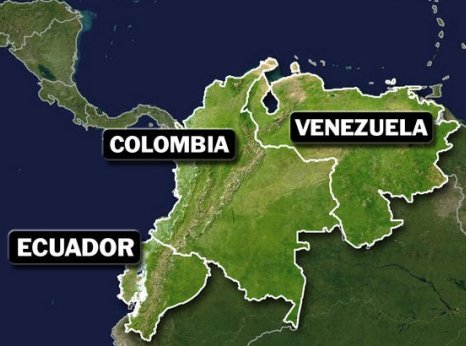Colombia: Guarantee Safe Return Of Displaced Fishers

The Magdalena Medio is an extensive valley between the Colombian mountain ranges crossed by Colombia's main river, the Magdalena River. Petroleum is one of the major sources of economic activity in the region, where the country's largest refinery operates in the city of Barrancabermeja, Santander, at the heart of the Magdalena Medio. The area also engages in agro-industry, mining, livestock, among other economic activities. Due to its location and the abundance of valuable resources like oil and water, the region is considered strategic and has been the subject of continuous disputes between the State and armed groups present in the country. The Magdalena Medio has also been an area for sustained processes of popular mobilization and human rights advocacy for decades where unions, feminist organizations, popular movements, and human rights defence has come together to form a strong local civic space. This, coupled with the dispute for territorial, political, and economic control of the region by interest groups and armed factions, has fostered a breeding ground for violence against human rights defenders that has persisted since at least the 1980s. Alarming figures of violence against the civilian population, especially homicides, have been recorded in the last years in the Magdalena Medio. All of this unfolds in a context of fight between at least four armed groups present in the region, including the Ejército Gaitanista de Colombia (EGC), also known as AGC or Clan del Golfo, currently the biggest armed group of the country and with the wider regional control.
The Federation of Artisanal, Environmentalist, and Tourist Fishers of the Department of Santander (FEDEPESAN) carries out its work in the San Silvestre lake, in the vicinity of the city of Barrancabermeja. FEDEPESAN has reported water pollution by regional companies and the presence of armed groups seeking control of the territory, including the water bodies. In this context, the president of FEDEPESAN, Yuly Velázquez, has experienced numerous forms of violence documented by Amnesty International, including a threat in November 2020, bullet impacts on her home in January 2021, intimidations during protest activities in August 2021, a firearm attack in May 2022, and another in July 2022 (resulting in an injury to a security guard of her protection scheme). In June 2022, Amnesty International issued an Urgent Action asking the Government to protect FEDEPESAN. Amnesty International has also documented deficiencies in the functioning of the protection scheme provided by the state through the National Protection Unit – UNP to Yuly Velásquez, due to her high level of risk, and has asked for better protection. Yuly Velásquez, received the 2024 Human Rights Award by Amnesty International in Germany.
In February 2024, March 2024 and January 2025 Amnesty Internacional has issued urgent actions asking the authorities to provide protection and carry out effective judicial investigation after threats by the EGC mentioning FEDEPESAN and CREDHOS, the human rights organisation supporting locally FEDEPESAN.
Since the beginning of 2025 FEDEPESAN has reported to the authorities various threats received by its members, which have heightened fear among the fisherpersons of the organisation. On 15 February, FEDEPESAN issued a public statement declaring that they felt forced to leave their territory with their families. In that context, Amnesty International asked the National Police to provide security to FEDEPESAN’s members and prevent this forced displacement, which would not only threatened their ability to continue practicing sustainable artisanal fishing but also jeopardized their role in monitoring the environmental impact on the lakes and rivers of Barrancabermeja. Amnesty International has monitored State actions to detect the risks faced by the fisherpersons of Barrancabermeja, such as the early warning AT 027 of 2022 by the Ombudsperson Office and meetings of the early warnings follow up commission CIPRAT led by the Ministry of Interior. Nevertheless, on 24 June 2025 dozens of fisherpersons, with their families, were forced to move to Bucaramanga, the regional capital of the Santander department, asking for the attention and protection of the authorities under the pressure of the risks detected, but not addressed, by the Colombian authorities.